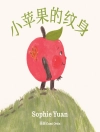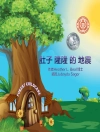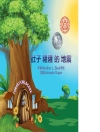In ‘The Rebel of the School, ‘ L. T. Meade presents a compelling narrative that examines themes of individuality, rebellion, and the dynamics of youth in a Victorian educational setting. The novel employs a rich, descriptive style, intertwining humor and pathos to illustrate the protagonist’s struggle against societal norms and the rigid structures of the school system. Through intricate character development and engaging dialogue, Meade invites readers to explore the complexities of adolescent identity and the often turbulent transition into adulthood in a meticulously crafted literary context that reflects the constraints of her era. L. T. Meade, a prominent British author of children’s and young adult fiction during the late 19th and early 20th centuries, drew upon her own experiences and observations of educational institutions to inform her writing. Meade was known for her ability to capture the spirit of youth and had a vested interest in the empowerment of young women, which permeates the narrative of ‘The Rebel of the School.’ Her background as a teacher helps to enhance the authenticity of the school setting, allowing her to critique and illuminate the challenges faced by students of her time. This book is highly recommended for readers seeking an insightful exploration of the conflict between conformity and individuality. It resonates with anyone who has ever felt like an outsider and offers a timeless message about the importance of self-acceptance and the courage to defy expectations. Meade’s incisive portrayal of adolescent struggles is both entertaining and thought-provoking, making it a must-read for lovers of classic literature.
Sobre el autor
Elizabeth Thomasina Meade Smith, widely recognized under the pen name L. T. Meade, was a prolific Irish writer, particularly famous for her books aimed at young girls. Born on November 1, 1844, in Bandon, County Cork, she moved to London in her early twenties, where she would become one of the most successful and productive writers of the late 19th and early 20th centuries. Meade authored over 300 books across various genres that included children’s fiction, mysteries, romances, and adventure stories, but she is best remembered for her contribution to girls’ school stories. Among her celebrated works, ‘The Rebel of the School’ stands out as an exemplar of her finesse in exploring the complex social dynamics at play within the educational institutions of her time. Meade’s literary style often combined vivid characterizations with engaging narratives, infused with moral overtones and reflections on societal norms. Her work predated and influenced the modern young adult genre, offering a lens through which readers could examine issues of independence, morality, and identity. L. T. Meade’s legacy endures, not only through her engaging stories but through her role as a pioneer of a literary form that spoke directly to the hearts and minds of adolescent readers, and she remains a significant figure in the field of children’s literature.












